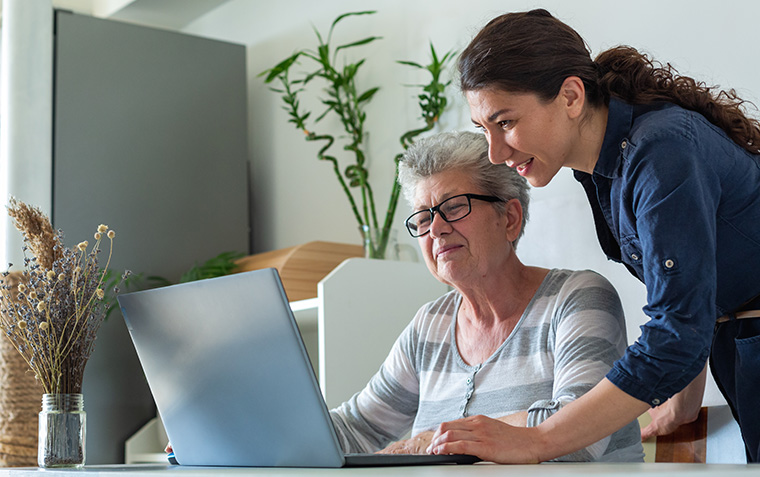Online Security for Seniors: Keeping Elderly Loved Ones Protected

The internet provides countless opportunities for seniors to connect with loved ones, access information, and stay entertained. However, with these benefits come potential risks to online security.
Seniors are often targeted by cybercriminals due to their perceived vulnerability. It's crucial for family members and caregivers to take steps to ensure the online security of their elderly loved ones. In this blog post, we'll explore tips and strategies to help seniors stay safe and secure while navigating the digital landscape.
Understanding the Risks
Before delving into online security tips, it's important to understand the potential risks seniors face:
Scams and Phishing: Seniors are often targeted by fraudulent emails, calls, and messages aimed at stealing personal information or money.
Identity Theft: Cybercriminals may attempt to steal seniors' identities for financial gain, which can have long-lasting consequences.
Malware and Viruses: Seniors may unknowingly download malicious software or visit infected websites, putting their devices and personal data at risk.
Privacy Concerns: Seniors may not be aware of privacy settings or the importance of safeguarding their personal information online.
Tips for Online Security
Education and Awareness:
Start by educating your elderly loved ones about common online scams and phishing attempts. Encourage them to be cautious when sharing personal information online, especially on social media.
Strong Passwords:
Help seniors create strong, unique passwords for each online account. Consider using a reputable password manager to generate and store passwords securely.
Two-Factor Authentication (2FA):
Enable 2FA wherever possible to add an extra layer of security to online accounts.
Safe Browsing Practices:
Teach seniors how to recognise and avoid suspicious websites and links. Install and regularly update antivirus and anti-malware software on their devices.
Privacy Settings:
Help seniors review and adjust the privacy settings on their social media profiles and other online accounts. Advise them to limit the amount of personal information they share online.
Regular Updates:
Ensure that their devices' operating systems, software, and applications are regularly updated to patch security vulnerabilities.
Secure Wi-Fi:
Secure their home Wi-Fi network with a strong password and encryption. Advise against using public Wi-Fi networks for sensitive transactions.
Safeguard Personal Information:
Remind seniors not to share personal or financial information over the phone or through email unless they are certain of the recipient's identity.
Email Caution:
Encourage them to be wary of unsolicited emails, especially those requesting money or personal information.
Regular Check-Ins:
Stay in touch and check in on their online activities regularly, offering assistance as needed.
* * * *
Online security is a shared responsibility, and it's essential to ensure that our elderly loved ones can navigate the digital world safely. By following these tips and fostering open communication about online risks, we can help seniors enjoy the benefits of the internet while keeping them protected from potential threats.
Together, we can empower our elderly family members to stay secure online and continue to be active participants in the digital age.



